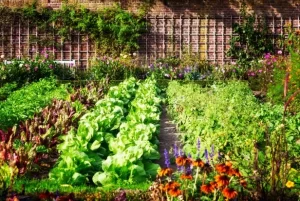October 5th, 2021
Before we share the history of World Teachers’ Day, we’d first like to show our appreciation for teachers all around the world that dedicate their time and lives to the development of young people. Almost everyone has had a favorite teacher or mentor in their lives at one point, someone who took extra time out of their day to go above and beyond for you because they could see your potential. Without this certain person, could you have reached the point where you are at now? Would things be different?
For all those reasons, we thank you.
History of World Teachers’ Day
To know World Teachers’ Day is to know UNESCO. The United Nations Educational, Scientific, and Cultural Organization was founded in 1945 and shaped by the Second World War as the successor to the League of Nations’ International Committee on Intellectual Cooperation. Their goals were established as part of existing objectives, which include promoting world peace and education through the program’s five major areas: natural sciences, social/human sciences, culture, communication/information, and education.
1966 Recommendation Concerning the Status of Teachers
On October 5, 1966, the Recommendation concerning the Status of Teachers was adopted by UNESCO and the International Labor Organization. This forum was an instrument used to set standards for teachers that addressed the status, rights and responsibilities, roles in recruitment, employment and learning conditions as well as furthering education.
Almost 30 years later, in 1993, at the International Conference on Education in Geneva, Federico Mayor, the Director-General of UNESCO, initiated World Teachers’ Day as a day to commemorate this adoption.
1997 Recommendation Concerning the Status of Higher-Education Teaching Personnel
Building on that was the 1997 Recommendation concerning the Status of Higher-Education Teaching Personnel. This separate recommendation was adopted in 1997 to complement the 1966 version by touching on topics concerning teachers and research personnel in higher education. This helped build a more holistic and inclusive view to the status and standards of teaching.
2030 Agenda
Years later in 2015, the Global Education 2030 Agenda was adopted by the international political community to build on these recommendations. Sustainable Development Goal 4 of the 2030 Agenda refers to education maintenance and development. A few of these goals (within S.D. 4) include:
- 1 By 2030, ensure that all girls and boys complete free, equitable and quality primary and secondary education leading to relevant and Goal-4 effective learning outcomes.
- 2 By 2030, ensure that all girls and boys have access to quality early childhood development, care and preprimary education so that they are ready for primary education.
- 3 By 2030, ensure equal access for all women and men to affordable and quality technical, vocational and tertiary education, including university.
- 4 By 2030, substantially increase the number of youth and adults who have relevant skills, including technical and vocational skills, for employment, decent jobs and entrepreneurship.
- 5 By 2030, eliminate gender disparities in education and ensure equal access to all levels of education and vocational training for the vulnerable, including persons with disabilities, indigenous peoples and children in vulnerable situations.
Sustainable Development
Further, Sustainable Development as a whole, pertaining to the 2030 Agenda, aims at “eradicating poverty in all its forms and dimensions, combating inequality within and among countries, preserving the planet, creating sustained, inclusive and sustainable economic growth and fostering social inclusion” (2030 Agenda for Sustainable Development: para.13).
Coinciding these adoptions among the international community, World Teachers’ Day recognizes and appreciates teachers as a vital aspect to the achievement and progression of the goals listed by the U.N. and related organizations.
World Teachers’ Day is jointly partnered with UNICEF, International Labor Organization, and Education International to highlight areas of achievement and reflect on areas to still improve.
Teacher Stats and Figures
- Before the coronavirus crisis, projections showed that more than 200 million children would be out of school, and only 60% of young people would be completing upper secondary education in 2030.
- 617 million youth worldwide lack basic mathematics and literacy skills.
- Some 750 million adults – 2/3 being women – remained illiterate in 2016. Half of the global illiterate population lives in South Asia, and a quarter live in sub-Saharan Africa.
- In 10 low- and middle-income countries, children with disabilities were 19% less likely to achieve minimum proficiency in reading than those without disabilities.
- 4 million refugee children were out of school in 2017.
- More teachers are needed in displacement settings. If all refugees enrolled, Turkey would need 80,000 additional teachers, Germany would need 42,000 teachers and educators, and Uganda would need 7,000 additional primary teachers. Yet refugee teachers are often excluded from national training programs because of professional regulations on right to work.
How To Celebrate World Teachers’ Day
- Surprise – Kids can show their appreciation for teachers by giving them a small gift or “thank you” card, surprising them with a home-made craft or drawings, or getting them a gift card to a restaurant.
- Make Them Feel Special – As a parent, show how much you appreciate them on World Teachers’ Day by bringing them coffee and donuts. You can also collaborate with administration to set up parent/teacher meetings for raffle drawings and other fun rewards.
- Join Initiatives – You can show your support for teachers by joining advocacy programs and other initiatives aimed at raising the standards for teachers. These programs offer help in the form of free continuing education platforms, resources, and other beneficial material.
A Special Message From Melnor®
We’d like to send a big thank you and round of appreciation to our local agriculture/horticulture teachers in the Winchester, VA & Shenandoah Valley-area! Your work does not go unnoticed as you are raising the bar at local middle school, high school, and university levels. Thank you for continuing to teach the occasionally overstepped subject of gardening, lawn care, and overall agriculture awareness. This subject is vital to our growth as a society and should not be overlooked if we hope to generate equal and quality education referring to the Sustainable Development Goal 4 of the 2030 Agenda.
Sources
“4 Quality Education” UN.Org Sustainable Development Goals, https://www.un.org/sustainabledevelopment/education/. Accessed 16 September 2021.
“Education 2030” Right-to-Education.org, https://www.right-to-education.org/issue-page/education-2030. Accessed 16 September 2021.
“Monitoring of international normative instruments regarding the teaching profession” UNESCO, https://en.unesco.org/themes/teachers/ceart. Accessed 16 September 2021.
Wikipedia contributors. “UNESCO.” Wikipedia, The Free Encyclopedia, https://en.wikipedia.org/wiki/UNESCO#:~:text=History-,Origins,culture%2C%20education%20and%20scientific%20achievements. Accessed 16 September 2021.
“World Teachers Day” Commemorations and Anniversaries, UNESCO, https://en.unesco.org/commemorations/worldteachersday. Accessed 16 September 2021.




